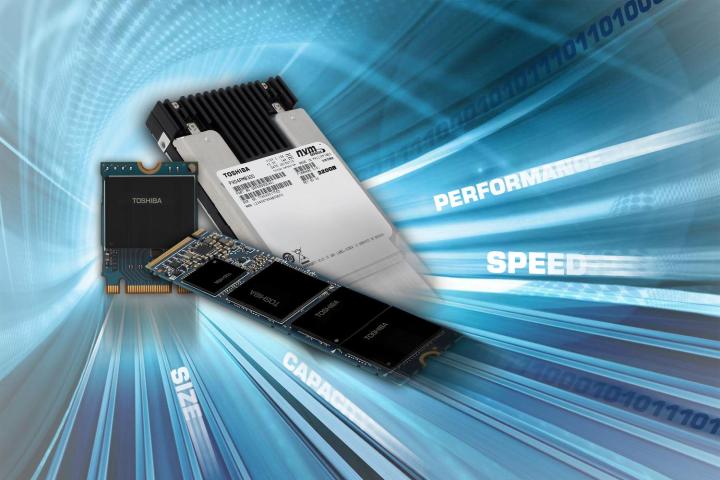
Today, Toshiba announced plans for three new families of SSD devices that make use of NVMe. Optimized for high performance and low latency, these drives look set to form the backbone of the company’s storage offerings for both home and business.
First up is the XG3 family, which is intended for use with high-end notebooks and desktop computers. These are going to be the drives that target power users with powerful rigs, who can take full advantage of functionality like support for up to four lanes of PCIe 3.1.
The XG3 SSDs will be made available in an M.2 2280 form factor, as well as being offered as a 2.5-inch SATA express device. The drives will be outfitted with Toshiba’s error-correction technology Quadruple Swing-By Code to help protect the user’s data, and they will also support low power state modes.
The BG1 range instead focusses on delivering optimal performance within a small space, and is being pitched as the world’s smallest NVMe SSD. These drives will be put to work in devices without the necessary room for a larger component, such as thin notebooks and tablets, as they’re being offered as both a removable M.2 Type 2230 module and a single package M.2 Type 1620. Toshiba plans to offer capacities up to 256GB.
Finally, there’s the business-centric PX04P line. These enterprise SSDs have been created with the needs of the workplace in mind, offering control over power and performance settings. Toshiba claims that the 2.5-inch PX04P SSD boasts the lowest power consumption in the industry, with just 18 watts of active power driving maximum performance. The PX04P line will also use Quadruple Swing-By Code technology for data protection.
Industry analysts expect that 2016 will be a big year for NVMe SSDs, and as such Toshiba has plans to begin the rollout of these three lines towards the end of this year. Pricing information has not yet been made available.


